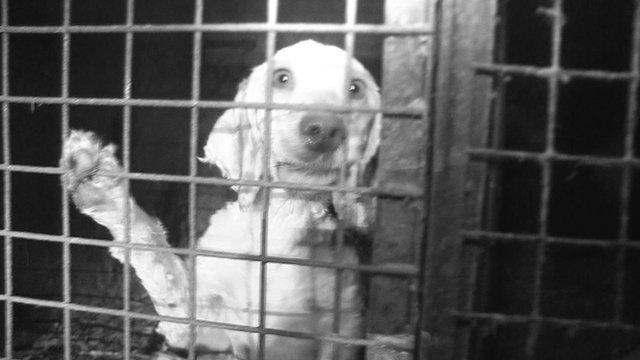Puppy farming reports increase almost five-fold - RSPCA
- Published
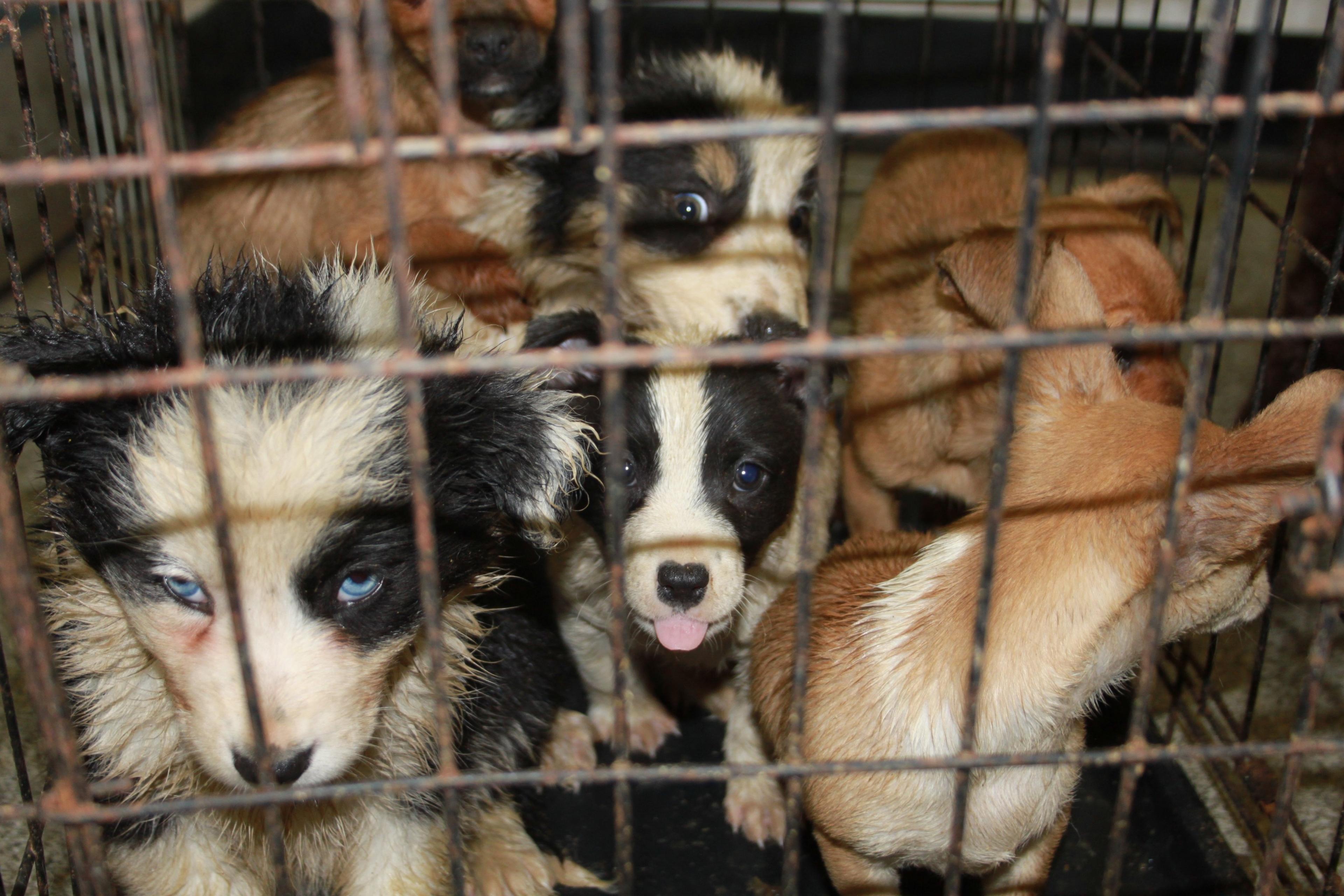
More than £5m in unpaid tax was recovered from black market breeders and traders this year
Reports of illegal puppy farming have risen almost five-fold in England in the last decade, figures suggest.
The RSPCA said it received 4,357 calls in 2018 alerting it to potential cases in England, up from 890 in 2008. Rises were also recorded in Wales and Scotland.
One animal welfare officer acknowledged the increased demand was partly driven by celebrity dogs on social media.
A government spokesperson said stricter laws would come into effect in 2020.
Illegal breeders can make millions of pounds rearing pups in dirty conditions, without food or water, the RSPCA said.
Cases have involved sick or dying puppies being sold to unsuspecting members of the public for hundreds of pounds each.
The RSPCA also warned that dealers were renting out homes and inviting prospective dog owners to meet the puppies there, making it look as though the animals were being reared in clean, safe environments.
While the number of reports has risen steadily in England in the last decade, the number of dogs rescued from the puppy trade has stayed fairly flat in that time.
In Wales the number of calls increased four-fold from 112 in 2008 to 452 in 2018.
The Scottish SPCA does not hold figures for the past 10 years but said the number of puppy farming-related calls to its confidential helpline had increased by 31% from 2017 to 2018.
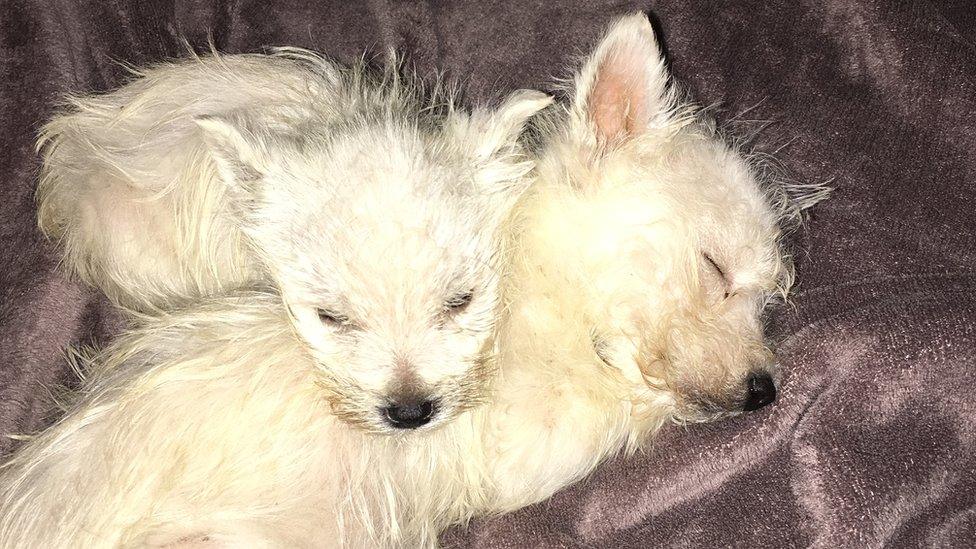
Westie pups Ben and Max died just five days after they were bought online in Warwickshire 2015
The RSPCA's dog welfare expert Lisa Hens said it was "distressing" to see reports on the increase, but added that the rise could be attributed to people becoming "more savvy" about illegal trading.
Scottish SPCA Ch Supt Mike Flynn said black market dealers profited from offering puppies to take home immediately - compared with a months-long process of buying a puppy from a reputable breeder.
When asked if hashtags such as #DogsOfInstagram, external might also be problematic for the campaign against illegal trading, Ch Supt Flynn said: "Trends certainly contribute to demand. People see their favourite celebrity with a dog and they immediately want one."

How can I help prevent illegal puppy farming?
Visit the puppy in the place it has been bred and reared
Visit more than once
Check the mum is interacting with the pups
Search the dealer's contact number online to see if it is being used on numerous puppy adverts
Be wary of breeders pressuring you into buying
Fill out the Puppy Contract, external
Contact the RSPCA, police or local council if you are concerned about something
Sources: RSPCA and Puppy Contract

The news comes as a parliamentary inquiry, external into puppy smuggling is launched.
Defra figures suggest more than 300,000 dogs were brought into the UK in 2018 - and Dogs Trust believes many of these animals were pregnant when they were imported.
The charity wants a change in legislation to protect dogs as well as potential owners.
Paula Boyden, from Dogs Trust, said its investigations showed a lack of enforcement, meaning there was "no real deterrent" for smugglers.
She said dealers capitalised on the "huge demand" for breeds such as French bulldogs and dachshunds.
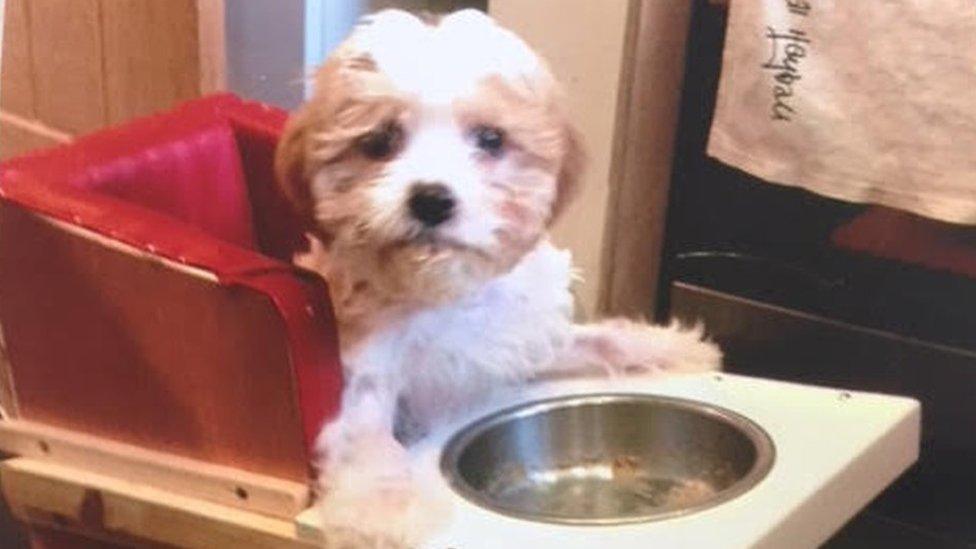
Max had to have treatment costing £5,600 when he fell sick just hours after a family in West Sussex bought him from a dealer
Defra said tougher licensing conditions and a ban on the third party sale of puppies and kittens from April 2020 would help to stamp out the "appalling trade".
Neil Parish, chair of the environment, food and rural affairs committee, welcomed the ban but said more could be done to tackle "this terrible trade".
Defra said another bill - to increase the maximum custodial penalty for animal cruelty from six months to five years in jail - was currently passing through Parliament, external.
- Published13 May 2019
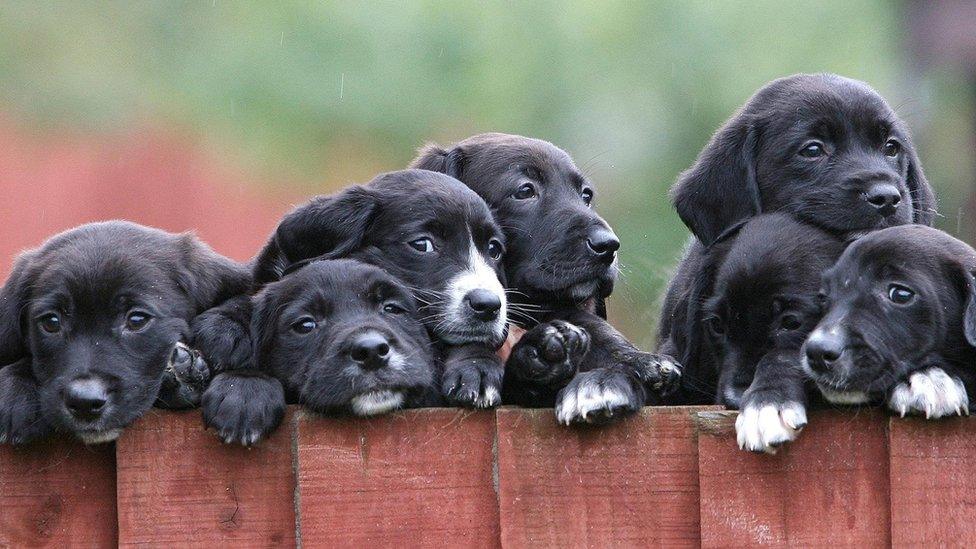
- Published16 May 2016
